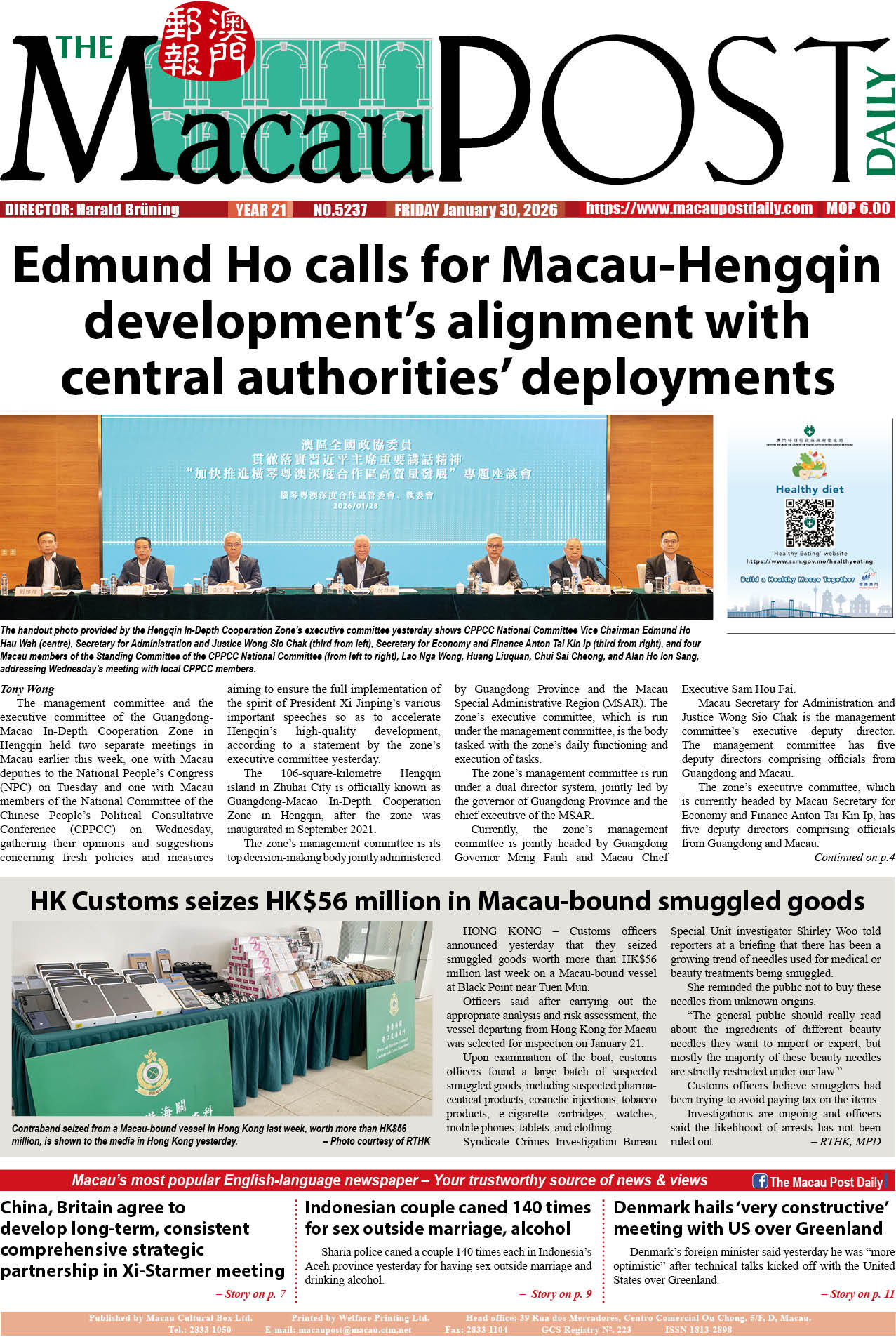The government’s Electronic Consumption Benefit Scheme tends to “increase the substitution effects as to reduce livelihood pressures while stabilising the local economy”, Macau Institute of Management (MIM) President Samuel Tong Kai Chung told The Macau Post Daily yesterday.
Tong made the remarks in an exclusive interview with The Macau Post Daily at the MIM office in Zape.
Tong pointed out that any financial policy launched by the government has an objective based on the actual conditions and economic situations. He used the differences between a subsidy scheme and the electronic consumption benefit scheme as an example to illustrate the measures used due to different situations. Tong said that before the first subsidy scheme was launched, the government as well as the residents’ expectation to the resumption of “normal traveller clearance” between Hong Kong and Macau was optimistic as they believed COVID-19 would pass as quickly as Severe Acute Respiratory Syndrome (SARS) had between 2002 and 2004, pointing out that Hong Kong is the second-biggest source of visitors to Macau’s economy. As a result, the subsidy scheme in 2020 was aimed at producing extra consumption in the local market, to thus strengthen the economy, Tong said.
The first subsidy scheme was carried out by the then Economic Service Bureau (DSE) in 2020 with a 3,000 pataca subsidy in the form of a consumption card, aiming to boost local consumption and stabilise the job market amid the ongoing adverse impact of the COVID-19 pandemic on Macau’s economy.
Tong noted that the Electronic Consumption Benefit Scheme is different to the subsidy scheme, the former of which was launched to allow residents to save their “original expenditures” with subsidies from the government consisting of a 5,000 pataca start-up funds, plus 3,000 patacas in discount grants in the form of digital currency on their electronic devices. Tong underlined that the “end date of COVID-19 is still unidentified”, and many employees have lost their jobs or needed to take unpaid leave during the pandemic period. Therefore, instead of boosting the economy, the scheme tends to reduce the livelihood pressures as the spending obviously will not be increased, Tong added.
The 3rd Round of the Electronic Consumption Benefit Scheme was announced by the Economic and Technological Development Bureau (DSEDT)* on April 29, and residents can register between the beginning of this month and January 17 next year, aiming to stimulate domestic demand and ease financial pressures faced by local residents and businesses.
Tong urged enterprises to take social responsibility by not raising products’ prices when people are spending their “consumption vouchers”.
E-consumption benefit scheme boosts digital economy
Tong said that the e-consumption benefit scheme allows locals to spend in Macau’s market again, adding that it is also beneficial for the development of the digital economy during the post-pandemic period as most of the businesses as well as consumers have been forced into digital transactions by using electronic devices to receive and make payments.
Local economy depends on tourism
According to Tong, while Macau has relied on the tourism industry since its return to the motherland in 1999, its number of tourists has dropped drastically from 100,000 arrivals daily to 20,000 visitors on average during the mainland’s recent five-day Labour Day “Golden Week” holiday” due to the impact of COVID-19. Local businesses as well as their employees in tourism-related industries, such as the retail and catering industries can only “tighten their belt” concerning consumption due to falling revenue sources, making it hard to see the motivation for economic growth, Tong said.

Macau Institute of Management (MIM) President Samuel Tong Kai Chung poses yesterday in his office at the Macau Chamber of Commerce Building in Zape. Photo: Yuki Lei








